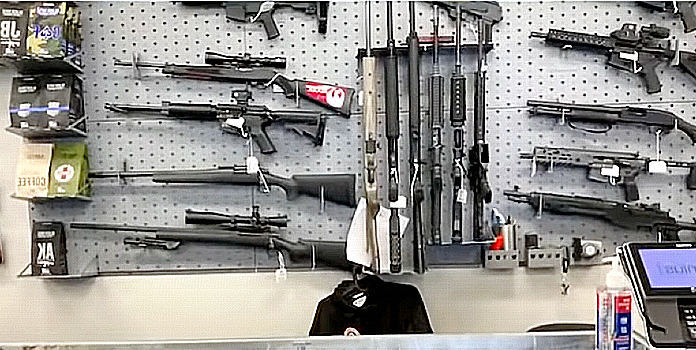(Headline USA) Annette Taddeo walked to a podium overlooking Miami’s Biscayne Bay and described to her audience how she had fled terrorism as a teenager in Colombia and now feared for the safety of her 16-year-old daughter at an American public school.
A blue and bright orange bus behind the Democratic congressional candidate carried this message in Spanish: “A future without violence.”
“Latinos are here because of the American dream, and it is really hard to do that when you are worried about your kids’ safety,” said Taddeo, a state senator who is challenging a Republican congresswoman, María Elvira Salazar.
Few places disappointed Democrats in 2020 as deeply as South Florida. A shift among Latinos toward the GOP contributed to several unexpected losses in House races and helped then-President Donald Trump carry Florida by more than 3 percentage points.
Democrats are campaigning differently this year as they aim to connect the party’s priorities to the personal experiences of a group that often feels overlooked in national politics.
The effort comes at a volatile moment for Latinos in Florida. Republican Gov. Ron DeSantis has attracted national attention to illegal immigration after arranging to fly a group of illegal immigrants from Texas to Massachusetts’ Martha’s Vineyard as part of a state-funded relocation program for illegal immigrants.
While some Venezuelans and Latinos affiliated with the Democratic party have condemned it as a “cruel stunt,” some exiles applauded DeSantis’ actions. Republican Sen. Marco Rubio of Florida, a Cuban American, wrote a column in Spanish for a conservative online platform seemingly taking DeSantis’ side by raising concerns that migrants crossing into the United States from Mexico could be criminals freed by Venezuelan leader Nicolas Maduro.
Gun violence, meantime, is a particularly powerful issue in Florida, where two of the deadliest mass shootings in recent years have occurred. Spanish-language media have given wide coverage both to the elementary school shooting in Uvalde, Texas, a predominantly Hispanic area, and to the penalty trial of the shooter who attacked a high school in Parkland, Florida, in 2018.
In an Associated Press-NORC Center for Public Affairs Research poll conducted in June, 35% of Latinos named gun issues in an open-ended question allowing people to identify up to five issues for the government to be working on in the next year. That compared with 18% in late 2021 and 10% in 2020.
For some Cubans, though, gun control is off the table.
Isabel Caballero, a 96-year-old Cuban woman, said she would not support any gun restrictions. In the years after Fidel Castro and his rebels toppled dictator Fulgencio Batista in 1959, Cubans were encouraged to register weapons and later authorities used a list to go door-to-door confiscating firearms.
“‘Guns, What for?’ That’s what he used to say. People turned them over, and then the only people who had guns were them,” Caballero said of Castro and his allies. “Lesson? Do not let them go.”
Adapted from reporting by the Associated Press

